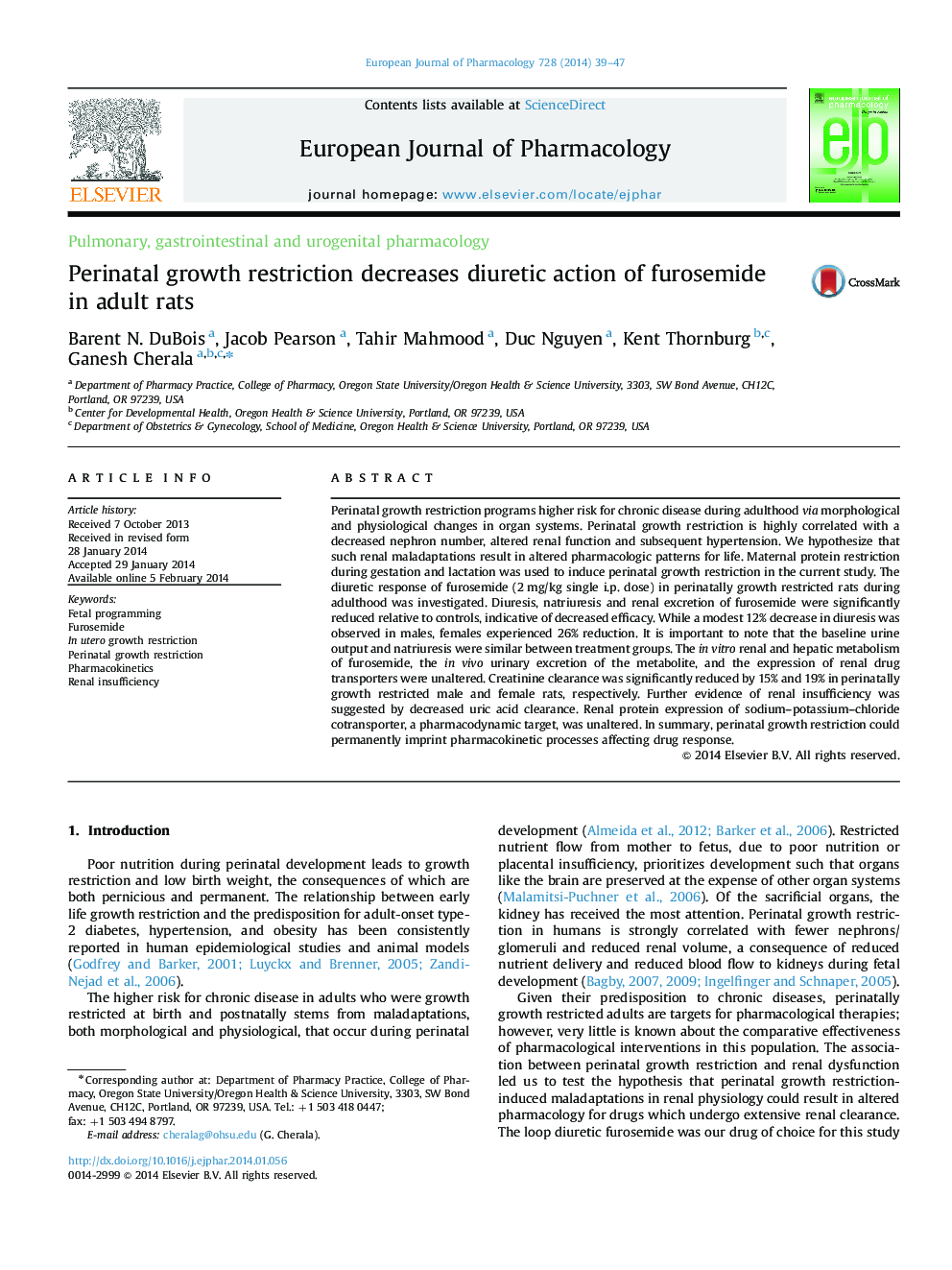| Article ID | Journal | Published Year | Pages | File Type |
|---|---|---|---|---|
| 2531850 | European Journal of Pharmacology | 2014 | 9 Pages |
Perinatal growth restriction programs higher risk for chronic disease during adulthood via morphological and physiological changes in organ systems. Perinatal growth restriction is highly correlated with a decreased nephron number, altered renal function and subsequent hypertension. We hypothesize that such renal maladaptations result in altered pharmacologic patterns for life. Maternal protein restriction during gestation and lactation was used to induce perinatal growth restriction in the current study. The diuretic response of furosemide (2 mg/kg single i.p. dose) in perinatally growth restricted rats during adulthood was investigated. Diuresis, natriuresis and renal excretion of furosemide were significantly reduced relative to controls, indicative of decreased efficacy. While a modest 12% decrease in diuresis was observed in males, females experienced 26% reduction. It is important to note that the baseline urine output and natriuresis were similar between treatment groups. The in vitro renal and hepatic metabolism of furosemide, the in vivo urinary excretion of the metabolite, and the expression of renal drug transporters were unaltered. Creatinine clearance was significantly reduced by 15% and 19% in perinatally growth restricted male and female rats, respectively. Further evidence of renal insufficiency was suggested by decreased uric acid clearance. Renal protein expression of sodium–potassium–chloride cotransporter, a pharmacodynamic target, was unaltered. In summary, perinatal growth restriction could permanently imprint pharmacokinetic processes affecting drug response.
